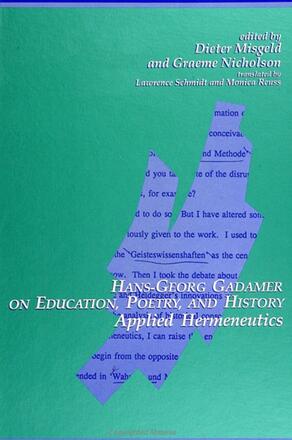
Hans-Georg Gadamer on Education, Poetry, and History
Applied Hermeneutics
Alternative formats available from:
Description
In these essays, appearing for the first time in English, Gadamer addresses practical questions about recent politics in Europe, about education and university reform, and about the role of poetry in the modern world. This book also includes a series of interviews that the editors conducted in 1986. Gadamer elaborates on his experiences in education and politics, touching on the collapse of the Weimar Republic, the early Frankfurt School, Heidegger and the Nazis, university life in East Germany, and the prospects for Europe in the coming years.
Hans-Georg Gadamer was probably Heidegger's leading interpreter in Germany, and in the 1950s and 1960s he became the world's leading exponent of hermeneutics. His hermeneutical theory explains how it is that ancient art and philosophy still speak to us today. His influential idea of the "fusion of horizons" also shows how it is that we understand what is remote form our own culture.
Dieter Misgeld is Associate Professor of the Ontario Institute for Studies of Education and the Graduate Department of Philosophy at the University of Toronto. He is coeditor of Modern German Sociology with V. Meja and N. Stehr. Graeme Nicholson is Professor of Philosophy at Trinity College in Toronto and author of Seeing and Reading and Illustrations of Being.